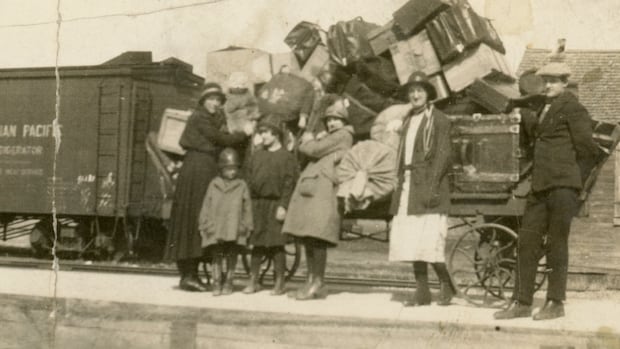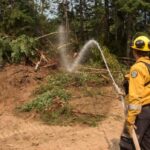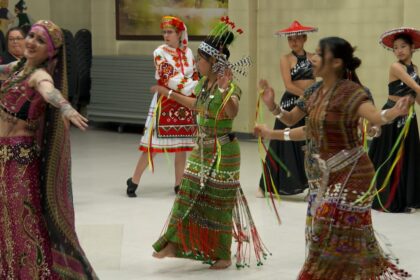ManitobaResearchers at the University of Winnipeg are working on what they say will be the largest oral history project on Mennonites in the country, trying to capture stories of those who fled the Soviet Union in the 1920s before those stories are lost.Research focuses on thousands who fled to Canada from aftermath of war, revolution in Soviet UnionJustin Fiacconi · CBC News · Posted: Aug 24, 2025 7:00 AM EDT | Last Updated: 5 hours agoA photo dated 1926 shows two immigrant families — the Voths and the Klassens — moving by train in Manitoba, according to the Mennonite Archival Information Database. A University of Winnipeg research project focuses on the 21,000 Mennonites who came to Canada from the Soviet Union in the 1920s. (Mennonite Archival Information Database)Researchers at the University of Winnipeg are working on what they say will be the largest oral history project on Mennonites in the country, trying to capture stories of those who fled the Soviet Union in the 1920s before those stories are lost.”These stories are disappearing quickly,” said Aileen Friesen, an associate professor in history at the U of W who is leading the project and has talked with the children of some of those migrants.They not only have stories about the struggles of their parents and grandparents, but also “a story to tell about their own childhood and growing up,” she said.”What happens when you grow up with parents and grandparents who experienced war, revolution, immigration? How does that shape your childhood?”Friesen’s team has interviewed more than 70 Mennonites since the project got funding from the philanthropical Schroeder Foundation last September, with more planned in coming months thanks to high interest. The project focuses on the 21,000 Russlander Mennonites who came to Canada, mostly to Manitoba, in the 1920s, fleeing from an “uncertain political environment” in the Soviet Union in the aftermath of the 1917 Russian Revolution, Friesen said.Winnipeg-based author and poet Sarah Klassen, whose family came to Canada in 1926 from what is now Ukraine, was one of the people interviewed for the University of Winnipeg oral history project. (Travis Golby/CBC)While most of those immigrants are now dead, their stories are carried on through their children. Sarah Klassen is one of those children. The 92-year-old Winnipeg-based author and poet has written about her family’s history.Both her father’s and mother’s families migrated in 1926 from a village near Kharkiv called Barvenkovo in modern-day Ukraine.”My mother was a storyteller, and she gets the credit for much of my starting to write,” said Klassen. Her first collection of poems, 1988’s Journey to Yalta, was based on her reflections of what her mother and grandmother told her about their experiences travelling in 1918 to Yalta, a city on the southern tip of the Crimean Peninsula, so Klassen’s grandmother could receive treatment for tuberculosis.One of the poems in the collection, August 1918, describes her mother’s recollections of long lineups for bread. It also recounts her running up the path of the sanatorium where Klassen’s grandmother was staying to find her “spitting blood again, shrouded in red-flecked sheets.””My mother was the source of all my information, and I knew how she must have felt at that time, growing up in a strange place and having nobody but her own family, really, to associate with,” said Klassen.A struggle to ‘re-establish themselves’That experience was common for many Mennonites who migrated to Canada from the Soviet Union during that period, coming to a strange place and at times feeling separate from the communities they were surrounded by, said Friesen.”This is also part of my family story,” said Friesen, whose father’s family migrated from imperial Russia to Canada in the 1870s. Her mother’s family came in the 1920s.Taking on the project as an academic, while also having a personal connection to the stories that travelled on those boats to Canada, has been a tremendous honour, she said, though it was an emotional experience for those telling them. University of Winnipeg assistant history professor Aileen Friesen is leading the oral history project. Frisen, whose own family was part of the Mennonite migration to Canada, says taking on the project has been a tremendous honour. (Travis Golby/CBC)”[They’re] stories about incredible tragedy, of death in the family due to typhus or due to violence during the revolutionary period, and the struggles trying to re-establish themselves in Canada,” said Friesen. “On one hand, yes, Canada was freedom, and there’s always that gratitude to Canada for being that freedom for these people, but they also had individual hopes and dreams that died on that boat.”Those who came had to quickly find new ways to earn a living, and often put aside their educational and professional aspirations — an experience still felt by many immigrants.”The Mennonites’ experience is not unique,” said Friesen. “You can fit all sorts of immigrant groups into that story, that general story of ‘how does one adapt but not lose identity.'” Read stories from CBC’s ‘Welcome to Canada’ immigration series Klassen’s mother’s story echoes that theme — she learned about her new country by working for neighbouring farmers.”I think she really had a tough time in adapting. Nothing was easy for her. She wasn’t given any lucky breaks,” said Klassen. “All her opportunities were taken away from her.”Like many Russlander Mennonites, Klassen’s family held on to language as one way of maintaining their cultural identity — strictly speaking German in the household. Their religious faith was another, as were culinary traditions such as faspa — a meal traditionally held on Sundays as a late afternoon lunch.While Klassen’s writing often reflects Mennonite experiences – much of it informed by her interest in her family history — preserving or maintaining her cultural identity was never her main intention. “I wasn’t thinking of myself as a Mennonite writer,” said Klassen. “I simply wanted to be a writer, and a writer has to have a story to tell, and my story happened to be a Mennonite one.”The immediate goal of the U of Winnipeg project is to collect and catalogue Russlander Mennonite stories to be stored at the Mennonite Heritage Archives, based at Canadian Mennonite University in Winnipeg, and later create a book and podcast, Friesen said.She hopes the project can contribute to a better understanding of Canadian history — a history Friesen says is complicated.”We have seen the magnitude and devastation caused by settler-colonialism, in which we understand the stealing of Indigenous lands, in which we understand all the harm that has been done,” said Friesen. “So Mennonites are coming, but Indigenous kids are being sent to residential schools — we have to put these stories together to better understand Canadian history.”ABOUT THE AUTHORJustin Fiacconi is an intern at CBC News. He can be reached at justin.fiacconi@cbc.ca.
Friday, 6 Feb 2026
Canada – The Illusion
Search
Have an existing account?
Sign In
© 2022 Foxiz News Network. Ruby Design Company. All Rights Reserved.
You May also Like
- More News:
- history
- Standing Bear Network
- John Gonzalez
- ᐊᔭᐦᑊ ayahp — It happened
- Creation
- Beneath the Water
- Olympic gold medal
- Jim Thorpe
- type O blood
- the bringer of life
- Raven
- Wás’agi
- NoiseCat
- 'Sugarcane'
- The rivers still sing
- ᑲᓂᐸᐏᐟ ᒪᐢᑿ
- ᐅᑳᐤ okâw — We remember
- ᐊᓂᓈᐯᐃᐧᐣ aninâpêwin — Truth
- This is what it means to be human.
- Nokoma











